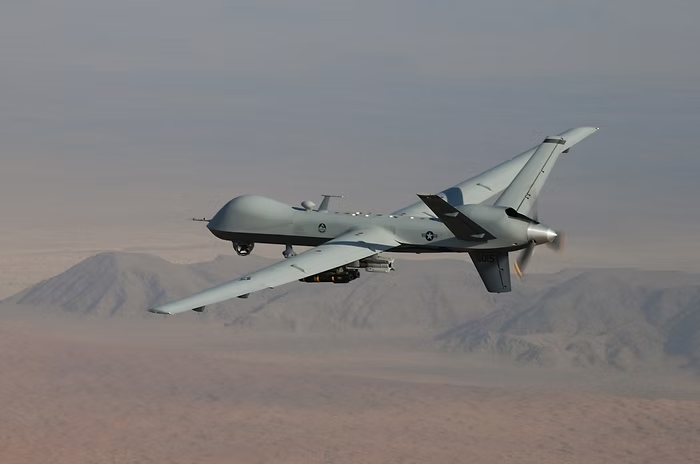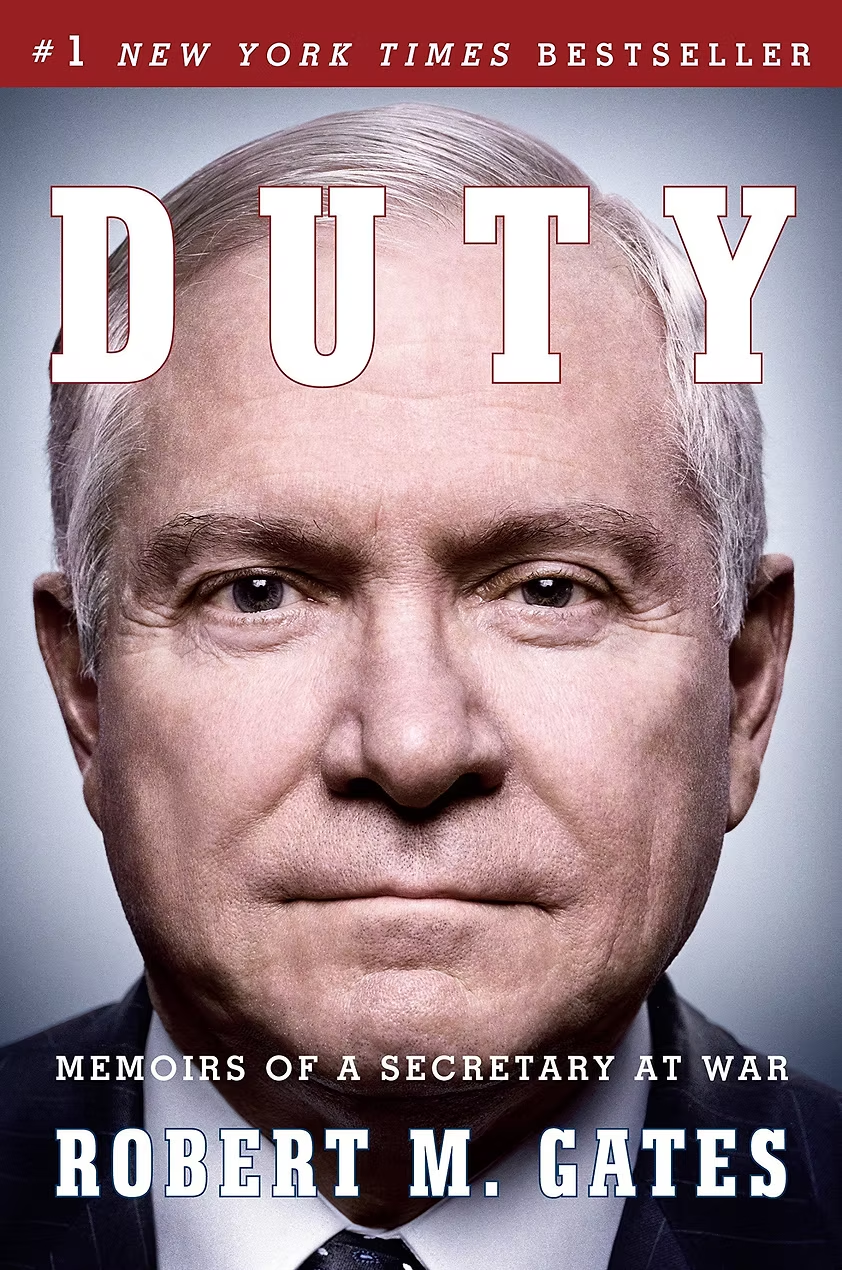I finally got around to reading the 2014 autobiography of one of the most fascinating Secretaries of Defense of the modern era.
Having served in the U.S. Air Force while Secretary Robert M. Gates was overseeing the Department of Defense (DoD), I have been eager to read his 2014 autobiography, Duty: Memoirs of a Secretary at War. Inside, he carefully chronicles his service as Secretary of Defense from 2006 to 2011, while pulling in select additional information from his life and distinguished career in public service. For those not familiar with him, his service as Secretary of Defense was unique. His entire lengthy five-year tenure occurred when U.S. armed forces were engaged in two separate conflicts (Iraq and Afghanistan) and spanned two different Presidential administrations, transitioning from a Republican to a Democrat cabinet.
What He Said
I learned a tremendous amount from Gates, both in the content and delivery of his story. His story was a fascinating look on the inside of how a Presidential cabinet – and the U.S. federal government – runs, beginning with the tumultuous process of Senate confirmation. Between his nomination to serve as Director of National Intelligence and his service as the Director of the Central Intelligence Agency, Sec. Gates was no stranger to Senate confirmation hearings. While those prior two confirmation hearings were substantially more hostile (and only half-successful), his confirmation to the position of Secretary of Defense was significantly smoother. He was nominated by President George W. Bush in the middle of his second term to succeed the controversial Secretary Donald Rumsfeld. As a result, most of the Senators from both sides of the aisle were far more welcoming and jovial.
One of the most interesting things I noticed throughout the book was Sec. Gates’ frustration with each of the military services and Congress’ role. As he stepped into the position in 2006, he noted that the services were utterly focused on building capabilities and training for a fight with China, Russia, North Korea, or Iran while largely ignoring assets that would be best suited for the current conflicts in Iraq and Afghanistan. He refused to be assuaged by arguments that those high-end assets could be swung down to low-intensity conflicts or that the procurement process was so slow, the current fights would be over before the DoD could successfully field. This was exacerbated by Congress, whose authority over DoD funding made them far more interested in protecting expensive projects built in their districts than pursuing relatively inexpensive capabilities to win the day’s fight. The irony to all of this was that many of the post-9/11 increases to DoD funding were still largely siphoned off to support these high-end programs while leaving the current fight in a malaise state.

I’ve personally experienced this frustration throughout my service, watching wildly expensive programs receive the lion’s share of funding and manpower allocations and produce few noticeable mission impacts, while smaller mission-focused programs efficiently drive overwhelming mission success. The argument is almost always the same: “well, if something big kicks off, the roles will be reversed, and those small war capabilities will be worthless.” To see a Secretary of Defense observe and fight the same challenge is at least vindicating. He specifically discusses how he pushed to further fund programs like the MQ-9 Predator remotely-piloted aircraft, the MC-12W Liberty light intelligence, surveillance, and reconnaissance aircraft, and the Mine-Resistant Ambush Protected (MRAP) armored vehicles. This stands as a unique contrast to his controversial decision to kill programs like the F-22 Raptor fighter aircraft and the Army’s suite of Future Combat Systems networked ground vehicles.
I was also fascinated by the often-delicate web of relationships Sec. Gates had to form with members of two different cabinets and the various politicians across Washington, D.C. The constant need to remain connected and balance personal against professional relationships with each of them seemed critical to gaining consensus on key issues. His perspective on the proper role of a cabinet member was especially useful insight; numerous times, he was prepared to offer a letter of resignation when he or his department failed. I realized that there are often only two tools available for a cabinet member to exercise influence on the President: publicly resign or leak to the press. As a consummate professional, Sec. Gates was notoriously guarded about leveraging either.

How He Said It
While the content of Sec. Gates’ story was intriguing, I paid close attention to the words he used, especially when describing the policy or personality of others. Even though he was (and is) ostensibly retired from political life, he was extremely respectful of anyone he discussed. Given that his selection as Defense Secretary was as much a referendum on Sec. Rumsfeld as it was the selection of Sec. Gates, I was deeply impressed that he didn’t use this opportunity to provide a juicy “tell-all,” exposing embarrassing commentary on anyone’s individual performance or personal conduct. Sec. Gates was even-handed with everyone, even Sec. Rumsfeld, who he arguably had every reason to censure.
Sec. Gates was slightly less charitable when it came to matters of policy, expressing his intense frustration with both the sluggish DoD procurement process and the reticence of the service chiefs to cooperate with his reforms. That conflict shouldn’t surprise anyone given the kinds of programs that were at stake, and Sec. Gates’ oft-intense focus on low-level tactical matters.
Criticism
The only area I found somewhat troubling was Sec. Gates’ preoccupation with maintaining the absolute safety of the service members deployed in harm’s way. As an Airman, I found it compelling and heartwarming, but as a military tactician, I felt needlessly pandering. Prolonged war is profoundly destructive and creates enduring multigenerational trauma; it should aim to meet its desired end state quickly and as violently as necessary. One of the core strategic problems facing the conflicts in Iraq and Afghanistan was (and arguably continues to be) the lack of clearly defined conditions for victory. While risk to forces must be balanced with risk to mission, the lack of conditions combined with a fear of career impact resulting from constantly second-guessed and closely scrutinized orders means that the mission will inevitably be risked before the forces.
This isn’t to say that risk to forces shouldn’t be considered, but if the mission is necessary enough, a certain level of risk must be accepted. I appreciate where Sec. Gates’ heart was at in trying to procure the best-quality protective equipment money could be, but in my opinion, our services would have been better served by pushing for either a) clearly defined conditions for victory, or b) accepting that these were nation-building projects deserving of a deliberate transition to a State Department/U.S. Agency for International Development (USAID) mission. Seeing soldiers on patrol trying to interact with unarmed locals from inside of an MRAP while wearing full body armor seemed impotent, though safe. I may have gotten Sec. Gates all wrong, and he was just too professional to admit that he was doing just what I would have expected and met with too much political resistance. At that point, I could understand the desire to do some damage control.
Conclusion
Duty offers a compelling tale and unique insight into the workings of the Office of the President of the United States and its cabinet from the perspective of the Secretary of Defense. Sec. Gates was in a fantastic position to compare and contrast, distilling the experience and expectations of the role regardless of the President’s party. His emphasis on relevant programs over big-budget assets for a high-end conflict that may never come left what some would call a legacy – and others a stain – for years to come. I deeply respect both the outstanding work he did and the professionalism he displayed throughout the book. I recommend reading Duty to anyone that’s interested in both a clear accounting for that period within the cabinet and a model for the professionalism, respect, and dignity that should be expected of any senior DoD leader.
